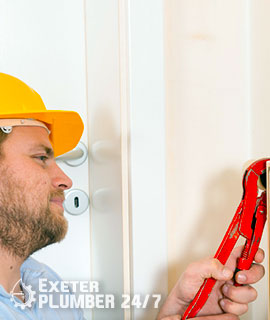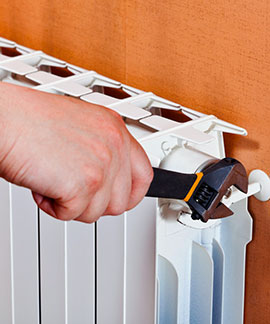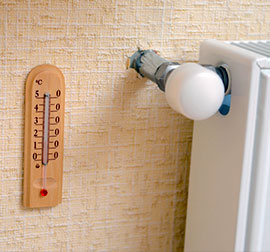When you are looking for a heating engineer to carry out your boiler installation, central heating installation or any other plumbing job; there are certain things you should be aware of things which cost a lot less than you might think.
A Heating Engineer Exeter is someone who repairs, installs, maintains and services all types of heaters and boilers. The work is carried out in homes, offices and commercial premises. Heating engineers may also undertake maintenance work on other household appliances such as cookers, ovens, refrigerators and freezers.
Installing and repairing boilers; fitting new central heating systems; servicing radiators; carrying out regular boiler checks; servicing fireplaces; repairing fires; installing smoke detectors; servicing central heating systems including hot water cylinders, pumps, radiators and valves.
Heating Engineer Exeter should have knowledge of the building regulations for gas appliances and should be able to carry out tests for carbon monoxide levels in the home. They need to have a working knowledge of electrical products such as cables and appliances as well as gas safety regulations.
Table of Contents
Commercial Heating Engineer Exeter
Commercial Heating Engineer Exeter work is carried out in domestic properties and commercial premises such as offices, schools, hospitals etc. Work is generally carried out on a call-out basis but some engineers provide a 24-hour emergency plumbing service. Engineers are required to travel to various different locations so they should be comfortable traveling in their own vehicle or using public transport.
A Commercial Heating Engineer Exeter r is someone who has experience in the installation of all types of heating systems, be they oil, gas, electric or some other form.
- Tasks that a heating engineer might undertake include:
- The maintenance of boilers and radiators
- The repair of faults in central heating systems
- The replacement of faulty components with new ones
- The servicing and cleaning of all elements of central heating systems
The role of a heating engineer is to keep you warm and to save you money by ensuring that your central heating system is running efficiently, thereby reducing your energy bills. This also means that you have a working system should the cold weather hit.
With winter fast approaching, now is the time to think about the central heating in your home. Most of us use our plumbing and heating systems without giving them a second thought, but they do need to be checked and serviced annually.

The benefits of employing a Heating Engineer Exeter are:
- Your central heating system is checked annually for safety and efficiency. That means you can rest easy that any problems which might arise will be picked up early.
- You will save money on your energy bills by ensuring your system runs as efficiently as possible.
- You will have expert advice at hand for any problems with your heating system, whether it is the boiler or other components, so that you can make informed decisions about the best way to proceed.
- It’s wise to employ a professional company to install or maintain your system. If you choose to undertake the installation yourself, you won’t have any warranty against faulty workmanship or materials if things go wrong in the future.


If you need the Exeter Plumber team that can solve all your plumbing operations quickly and affordably, you can reach our 24/7 services from our phone numbers. After you contact us, our nearest Heating Engineer Islington employee will assist you for the most appropriate solution.
Frequently Asked Questions About Heating Engineer Exeter
How can I get my boiler serviced?
If you have a gas boiler and it’s not working properly or there are other problems with your central heating system, contact a qualified engineer to fix the problem as soon as possible.
What do I do if my boiler is noisy?
If your boiler makes a humming, screeching or rattling noise, it’s likely that the pipes are loose within the heating system. The best way to fix this is to call a professional who has experience with boiler systems.
What is Heating?
Heating, ventilation, and air conditioning (HVAC) systems provide comfort and improve indoor air quality by delivering cleaner air to homes and businesses. HVAC systems can be used in commercial and industrial buildings, as well as in residential homes. Typical HVAC systems use a fuel source to power a furnace or boiler to heat water that’s circulated through pipes to radiators or warm air furnaces.
Get A Free Estimate
We are more than happy to give advice on which solution is most suitable for your needs, depending on your Plumbing Serviecs. Why not ask us to view your property and discuss the various options with you now. Our advice is free!


